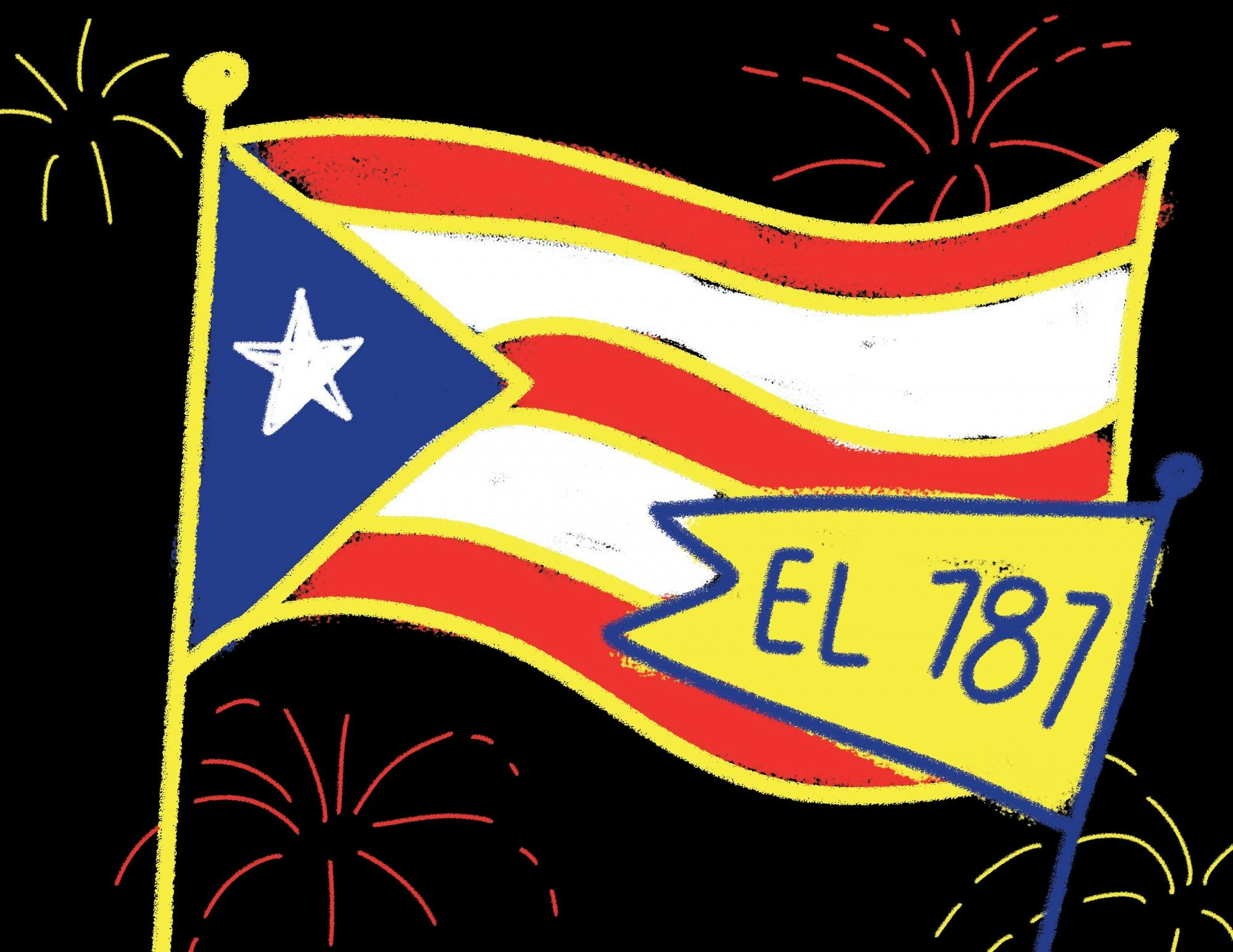Serbia-Ruiz, a junior studying marketing and analytics, spoke about the indigenous group that inhabited the island before Spanish colonization.
El 787, a Puerto Rican student organization at Ohio University, hosted the event and corrected the U.S. education system’s mistakes. Serbia-Ruiz is the president of the organization and said Puerto Rican history should be learned as part of American history.
“You kind of know growing up in Puerto Rico but again being a U.S. territory they have to follow U.S. guidelines,” Serbia-Ruiz said. “It’s really interesting to learn because people don’t know about it, and it’s part of American history. We are still part of American history.”
Serbia-Ruiz spent hours in the library compiling information about Puerto Rico’s early history for the presentation. The indigenous Taíno culture and heritage of Puerto Rico, which the Taínos called Borikén, “dominated the island,” according to University’s Genocide Studies Program. In 1493, Christopher Columbus came to the island and named it San Juan Bauista after Saint John the Baptist. One of Columbus’ former lieutenants, Juan Ponce de León, “heard rumors regarding the wealth of gold” and in 1508, the governor of Hispaniola gave Ponce de León permission to “explore and subjugate the island,” according to Yale.
Although the Taínos were friendly to the Spanish, Ponce de León took control over the island.
“The Spaniards treated the indigenous population severely, enslaving and exploiting them, forcing them to work in mines to search for gold in construction, and in agriculture,” according to the Puerto Rican Cultural Center.
The Puerto Rican diaspora includes Taíno, Spanish and African roots, according to the Center for Puerto Rican Studies. The island’s diversity and history is crucial when understanding the way the U.S. treats the territory today. The U.S. took control over Puerto Rico in 1898 during the end of the Spanish-American war, according to the Library of Congress. In 1917, President Woodrow Wilson signed the Jones Act, which granted U.S. citizenship to Puerto Ricans.
El 787 was founded in 2019 by Isabella Philippi Cámara who is an OU alum. Serbia-Ruiz said the organization’s mission is to provide space and educational opportunities.
“The point of the club is to not only have a space for Puerto Ricans like us, but people that want to learn about it, especially other Latinos because we are a really large influence in Latin America,” Serbia-Ruiz said.
As president, Serbia-Ruiz wants to not only continue to talk about Puerto Rico’s history and host other informative meetings, but also add a social aspect to the organization’s meetings.
“I know it’s hard to come to college, especially if you’re coming from Puerto Rico and not knowing people,” Serbia-Ruiz said. “And I just wanted to add something more social to it.”
Serbia-Ruiz also said El 787 is working with other multicultural student organizations on campus.
“We’re working with Latino Student Union next week,” Serbia-Ruiz said. “We’re doing karaoke night. And then we’re actually working with AAPISU and doing a K-pop versus reggaeton night. I wanted to work with other minority groups because we need to support each other, especially at a PWI (predominantly white institution).”
Another opportunity Serbia-Ruiz is working on is with a recruiter to bring more students in Puerto Rico to OU. Serbia-Ruiz said that the opportunity could help Puerto Rican students connect with one another and to gain new experiences.
Alina Rosado is a junior studying musical theater and has been the secretary of El 787 for two years. Rosado was born in San Juan, Puerto Rico, and grew up there but decided to come to OU because of the organization’s founder.
“It’s been a really nice way to stay connected to my roots and talk to people who kind of understand what our culture is like,” Rosado said.
Back in Puerto Rico, Hurricane Fiona hit the island on Sunday and also damaged its electricity grid, leaving residents without power.
“Hurricanes are nothing new to Puerto Rico,” Serbia-Ruiz said. “But it seems to get worse and worse with time. Hurricane Maria was one of the biggest catastrophes to recently hit Puerto Rico and there (are) still people recovering to this day.”
Ella Schaffer, a sophomore studying special education, said the hurricane is “a state of disaster” and is concerned about the affected people.
“I feel like the whole country needs to help them and get what we can get to them,” Schaffer said.
There are organizations and nonprofits people can donate to for hurricane relief such as Taller Salud, Hispanic Federation and PRxPR. However, Serbia-Ruiz said preventing the lasting impacts of hurricanes should start with legislation.
“Puerto Rico has been a U.S. territory since the early 1900s and is consistently being neglected by the government,” Serbia-Ruiz said. “Learning about the island’s history, people, culture, etcetera and bringing awareness to the issues can spark change in our government.”
El 787 is bringing together people of Puerto Rican descent and others who want to learn about the culture and history. But the organization also serves another purpose to its members.
“I think it’s about having a lot of people from where you are, which is how I like to look at it,” Rosado said. “I feel like more than a club, we’re a family.”

